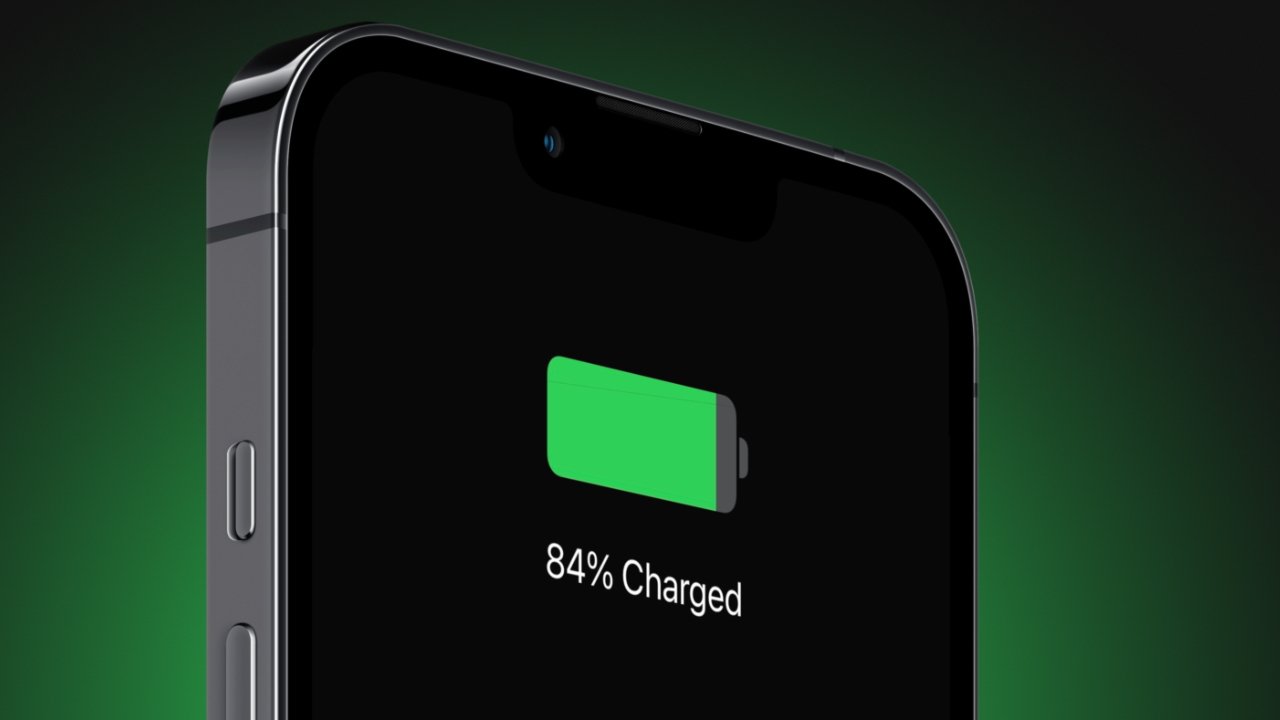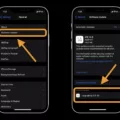Your iPhone battery is a crucial component that powers your device and enables you to stay connected. However, over time, the battery’s performance can degrade, leading to decreased battery life and potential issues with your iPhone’s overall functionality. In this article, we will explore when it’s time to replace your iPhone battery and how you can do it yourself.
As mentioned earlier, iPhone batteries have a limited lifespan. Most batteries are designed to last for at least 2 to 3 years, but they can often go even longer with proper care. However, there are signs that indicate it may be time to replace your iPhone battery:
1. Decreased Battery Life: If you’ve noticed that your iPhone’s battery life is significantly shorter than it used to be, even after a full charge, it could be a sign that your battery is deteriorating. If you find yourself constantly needing to recharge your phone throughout the day, it’s a clear indication that a battery replacement may be necessary.
2. Lower Screen-on-Time: Another indicator of a deteriorating battery is reduced screen-on-time. If you used to get several hours of active screen usage but now find yourself needing to charge more frequently, it’s likely due to a declining battery health.
3. App Crashes and Frame Drops: A failing battery can cause your iPhone to struggle with handling power-intensive tasks, resulting in frequent app crashes or noticeable frame drops. If you’re experiencing these issues, it’s worth considering a battery replacement.
Replacing Your iPhone Battery
If you’re hesitant about taking your iPhone to an Apple Store or using their mail-in service, you have the option to replace the battery yourself through Apple’s self-repair program. This program, introduced in mid-2022, allows you to order spare parts, tools, and how-to manuals directly from Apple.
By following Apple’s self-repair instructions, you can safely replace your iPhone battery without professional assistance. However, it’s important to note that self-repair carries some risks, and if you’re unsure about your technical skills, it’s best to seek professional help.
It’s worth mentioning that Apple has recently increased the battery replacement cost for iPhone 13 or older models by $20 (roughly Rs. 1,650), effective from March 1. This means that battery replacement for iPhone 13, iPhone 12, iPhone 11, and iPhone X models will now cost up to $89 (roughly Rs. 7,300).
Taking care of your iPhone’s battery is essential for maintaining its overall performance and longevity. If you notice signs of a deteriorating battery, such as decreased battery life, lower screen-on-time, or frequent app crashes, it may be time to consider a battery replacement.
Whether you choose to have your battery replaced by Apple or opt for the self-repair program, ensuring your iPhone has a healthy battery will enhance your user experience and prevent any potential issues that may arise from a failing battery.

How Much Does It Cost to Replace iPhone Battery?
As of Aug 1, 2023, Apple has raised the price for replacing the battery in iPhone models from iPhone 13 and older. The cost for battery replacement has increased by $20, bringing the total to $89. This price applies to all phones in the iPhone 13, iPhone 12, iPhone 11, and iPhone X lineups. Here are the key points regarding the cost of replacing an iPhone battery:
– The battery replacement cost for iPhone 13 or older models has been raised by $20.
– The new price for battery replacement is $89.
– This increase applies to all phones in the iPhone 13, iPhone 12, iPhone 11, and iPhone X lineups.
– The change is effective from March 1, 2023.
It’s important to note that these prices are specific to Apple’s official battery replacement service. Other third-party repair options may offer different pricing.
Is it Worth to Replace The Battery in An iPhone?
It is worth it to replace the battery in an iPhone if its battery health is less than 80% and you are experiencing lower screen-on-time. When the battery health deteriorates, it can lead to decreased performance and shorter battery life. By replacing the battery, you can improve the overall performance of your iPhone and increase its battery life.
Here are some reasons why it is worth replacing the battery in an iPhone:
1. Longer battery life: Over time, the battery in an iPhone can degrade, resulting in shorter battery life. By replacing the battery, you can significantly improve the battery life and ensure that your iPhone lasts longer on a single charge.
2. Enhanced performance: If you notice frequent app crashes or frame drops, it could be due to an aging battery. A worn-out battery may struggle to provide enough power to the device, leading to performance issues. By replacing the battery, you can restore the device’s performance and eliminate any slowdowns or crashes.
3. Cost-effective solution: Replacing the battery is generally more cost-effective than purchasing a new iPhone. It allows you to extend the lifespan of your current device without the need for a costly upgrade. Battery replacements are typically cheaper and can provide a significant improvement in performance and battery life.
4. Sustained functionality: A healthy battery is crucial for the overall functionality of an iPhone. When the battery health deteriorates, it can cause unexpected shutdowns or difficulties in powering on the device. Replacing the battery ensures that your iPhone functions smoothly and avoids any inconvenience or disruptions.
5. Increased resale value: If you plan to sell your iPhone in the future, having a new battery can increase its resale value. Potential buyers often look for devices with longer battery life, and a fresh battery replacement can make your iPhone more appealing and desirable.
Replacing the battery in an iPhone is worth it if the battery health is less than 80% and you are experiencing performance or battery life issues. It can improve the device’s performance, increase battery life, and provide a cost-effective solution to extend the lifespan of your iPhone.
How Long Do iPhone Batteries Usually Last?
On average, iPhone batteries typically last for 2 to 3 years. However, it’s important to note that battery life can vary depending on several factors, such as usage patterns, charging habits, and overall device maintenance.
Here are some key factors that can affect the lifespan of an iPhone battery:
1. Usage patterns: Heavy usage, such as playing graphics-intensive games or streaming videos, can drain the battery faster and potentially shorten its lifespan.
2. Charging habits: Overcharging or frequently draining the battery to 0% can impact its overall health. It is recommended to keep the battery level between 20% and 80% for optimal longevity.
3. Temperature: Extreme temperatures, both hot and cold, can negatively impact battery performance. It is best to avoid exposing your iPhone to extreme temperature conditions.
4. Software updates: Regularly updating your iPhone’s software can help optimize battery performance, as manufacturers often release updates that improve power management.
5. Battery health: iPhones have a built-in feature that allows users to check their battery health. This feature provides information about the maximum capacity of the battery and whether it needs to be replaced.
6. Overall device maintenance: Taking care of your iPhone, such as keeping it clean, avoiding physical damage, and using original charging cables and accessories, can contribute to better battery performance.
While the average lifespan of an iPhone battery is around 2 to 3 years, it’s worth noting that some users may experience longer or shorter battery life depending on their usage habits and device maintenance. Monitoring your battery health and considering a replacement if necessary can help ensure optimal performance from your iPhone.
Can You Replace the iPhone Battery Yourself?
It is possible to replace the battery on your iPhone yourself. Apple provides a self-repair program that allows you to order the necessary spare parts, tools, and how-to manuals directly from them. This program was launched in mid-2022 and provides an alternative option for those who are reluctant to visit an Apple Store or use Apple’s mail-in service.
To replace the iPhone battery yourself, you can follow these steps:
1. Visit Apple’s self-repair program website and select your iPhone model.
2. Order the battery replacement kit, which will include the necessary tools and instructions.
3. Once you receive the kit, carefully read through the provided manuals to understand the battery replacement process.
4. Make sure to gather all the necessary tools mentioned in the manual, as you will need them for the replacement.
5. Power off your iPhone and follow the step-by-step instructions provided by Apple to remove the old battery.
6. Take your time and be gentle when removing the old battery to avoid any damage to the internal components.
7. Once the old battery is removed, follow the instructions to install the new battery in its place.
8. Ensure that the battery is properly connected and securely in place before proceeding.
9. power on your iPhone and check if the new battery is functioning correctly.
By following these steps and using the resources provided by Apple’s self-repair program, you can replace the battery on your iPhone yourself. However, it’s important to note that this process requires some technical knowledge and skill, as well as careful handling of the internal components. If you are unsure or uncomfortable with performing this repair yourself, it’s recommended to seek professional assistance from an authorized service provider.
Conclusion
The iPhone battery is an essential component that plays a crucial role in the overall performance and longevity of the device. Over time, the battery’s capacity decreases, leading to shorter battery life and potential issues such as app crashes and frame drops. It is important to monitor the battery health and consider replacing it when necessary.
Apple offers a battery replacement service, and the cost has recently increased by $20 for iPhone 13 or older models. This means that battery replacement for iPhone 13, iPhone 12, iPhone 11, and iPhone X lineups will cost $89. If your iPhone’s battery health is below 80% and you’re experiencing decreased screen-on-time, it may be a good time to consider replacing the battery.
Alternatively, if you’re comfortable with DIY repairs, Apple provides a self-repair program where you can order spare parts, tools, and manuals needed to replace the battery yourself. This option can be convenient for those who prefer not to visit an Apple Store or use the mail-in service.
Ultimately, understanding the signs of a deteriorating battery and taking appropriate action can greatly enhance the performance and user experience of your iPhone. Asurion, a trusted tech support provider, helps millions of people optimize their devices, and they recommend replacing an iPhone battery after a certain period of use. With proper care and maintenance, you can ensure that your iPhone’s battery continues to serve you well.








